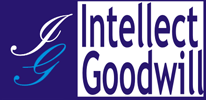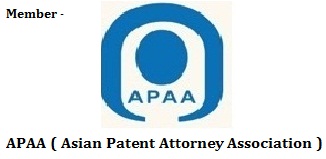WAIVERS ON PATENT PROTECTIONS IN NATIONAL EMERGENCIES
BY SIDDHARTH SONI
Introduction
While the whole world battles with the current pandemic, search for the drug which can be a cure for COVID-19 is still in progress. A patent bestows a right in the author to stop others from copying, manufacturing, selling or importing your invention without the permission from the author. One of the main advantages of securing a patent is that the author gets an exclusive right to license or sell the patent. This can be an important source of revenue when it comes to business. Sometimes, the existence of some businesses solely depend on collection of royalties from a patent that they have licensed. But there also exists some limitations and restrictions on patents. One of them being, Compulsory Licensing, means that the government can allow other manufacturers to produce a patented product or a process without the consent of the actual owner. The article further focusses on when can a patent be licensed? What happens to the rights of the patent owner in a time of National Emergency.
Compulsory Licensing & the TRIPS Agreement
Some of the important changes that the TRIPS agreement introduced were pharmaceutical patent protection. Developing countries found it difficult to access to affordable drugs. Major pharmaceutical companies all started to license their drugs for high revenues, which ultimately gave a blow to the poor and needy nations. Access to affordable drugs and medicines cannot be ignored in developing countries. The TRIPS agreement enlists a number of conditions that are required for issuing a compulsory license. One of the conditions include prior negotiation of the owner of the patent with the licensee to obtain a license on reasonable costs. However, Article 31(b) of the TRIPS agreement provides for waiver of the conditions in case of a national emergency.
What amounts to a National Emergency?
The TRIPS agreement is silent on what constitutes a ‘national emergency’. Indeed, some businesses exist solely to collect the royalties from a patent they have licensed – perhaps in combination with a registered design and trade mark. Indeed, some businesses exist solely to collect the royalties from a patent they have licensed – perhaps in combination with a registered design and trade mark. National Emergency, as defined in the Black’s Law Dictionary is a state of national crisis and is a situation demanding immediate and extraordinary national or federal protection. The Doha Declaration on the TRIPS agreement and Public health states the situations that can be considered as instances of national emergencies. There have been many instances where countries considered compulsory licensing during a national emergency, for example, Zimbabwe declared a period of national emergency for 6 months to contain the spread of HIV/AIDS, which in turn enabled the government of Zimbabwe or any person authorised by the state to make, use or import any generic antiretroviral drug (ARV).
India and Compulsory Licensing
The Indian Patent Act, 1970 deals with the conditions for compulsory licensing which are mentioned under §84 and §92 of the said act. Any person, under §84, after three years from the date of grant of that patent, can make an application for grant of a compulsory license. In current situation of a pandemic, the government would be most interested in acquiring compulsory licenses to make drugs and other patented products accessible to citizens at affordable prices. It was in the case of Natco vs. Bayer, that the Controller of Patents was of the opinion that expensive patented drugs should be made available for compulsory licensing. §92(3)(i) of the Indian Patent Act, 1970 states that a third party during a situation of national emergency, shall not apply any procedure specified in §87 in relation to that application for grant of licence. It includes public health crisis situations such as Acquired Immuno Deficiency Syndrome, Human Immuno Deficiency Virus, tuberculosis, malaria or other epidemics.
India’s reaction to Compulsory Licensing in times of a Pandemic
In rise of the current pandemic, many countries have started resorting to compulsory licensing in such an emergency situation. Critical supply shortages of medical devices and medicines had been have proved to be major challenges before the government. Countries that have large scale production capacity for medicines such as India and China have widely patented a drug called Remdesivir. Remdesivir originally developed for other viral infections, including Ebola and the Marburg virus, is a patented product of Gilead Pharmaceuticals and is known to be a promising drug for the cure of Covid-19 Virus. Gilead submitted a request to the FDA to cancel its seven-year orphan drug regulatory exclusivity for potential Covid-19 treatment Remdesivir. Meanwhile, Medtronic agreed to share publicly its proprietary design specifications for the PB560 ventilator. These steps to share the drug for licensing are some major steps taken by big pharmaceutical companies for the development of the industry. Meanwhile, Israel have issued compulsory patent licenses related to lopinavir/ ritonavir (brand name Kaletra). Israel is one of the few countries that is always ready to share patented drugs as a compulsory license.
India currently is struggling with shortage of PPE Kits, 3-ply masks, N-95 masks. The struggle is driven by shortage of raw materials and the lack of technical expertise required to manufacture such high-end products. Many pharmaceutical companies such as the Pune based Serum Institute of Technology claims to have the vaccine in 3 weeks, and it promises not to patent the vaccine and share the same by granting licenses to other pharmaceutical companies.
Conclusion
While the sole purpose of Compulsory Licensing is to reduce the prices of pharmaceutical drugs by minimizing the monopoly in the pharmaceutical industry, it also negates the primary benefit to the patent owner of licensing the patent to third-parties by earning royalties. The vaccine, if developed by any country would undergo compulsory licensing to curb the effect of the virus as soon as possible. Due to this, many pharmaceutical companies do not wish to contribute to the development of vaccine for the novel Coronavirus, Covid-19 as they would not be able to earn any royalty if they invest all their resources for the development of the vaccine. This seems to be a serious issue as this would hinder the struggle towards fighting this novel coronavirus.
Disclaimer: The views and opinions expressed in this article are those of the authors and do not necessarily reflect the official policy or position of any agency of the Indian government. Examples of analysis performed within this article are only examples. They should not be utilized in real-world analytic products as they are based only on very limited and dated open source information. Assumptions made within the analysis are not reflective of the position of any Indian government State.
The author is a 2nd-year law student at Symbiosis Law School, Pune.


